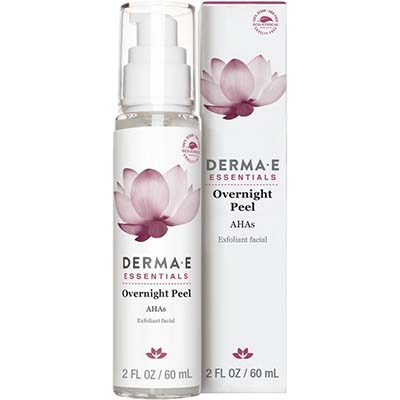As you begin to focus on youth preservation as it relates to skincare, there doesn’t exist a topical treatment more effective at maintaining elasticity and and warding off fine lines than Retinol. While Retinol is an absolute necessity for retaining your youthful glow, navigating the different formulations and deciding which is best for your routine can be tricky.
We’re breaking down the different terminology of Retinol and some important tips you should know before you begin using it. Relax, your best skin is on the way!
What is Retinol?
Retinol, to put it simply, is a form of Vitamin A. In skincare, retinol is the gold standard for youth preservation (anti-aging) because it is the only scientifically proven ingredient that effectively stimulates the production of collagen while also being extremely effective against acne. Retinol is the only ingredient that the FDA will legally allow skincare companies in the US to refer to as “anti-aging.”
There are various types of retinols, and navigating the verbiage is what makes this must-have product sometimes very intimidating to understand. Retinol, retinoids, and Retin-A — what’s the difference? The difference comes down to retinoic acid.
Retinols and retinoids are essentially the same thing, when applied topically they react with the enzymes in your skin to produce retinoic acid. Your skin uses this retinoic acid to improve discoloration, reverse the visibility of fine lines, stimulate collagen production, and strengthen deeper levels of your skin to prevent it from showing signs of aging. This process is a lengthy one — the creation and retention of higher levels of retinoic acid can take 3-6 months to see full results.
Retin-A is one of many brand names for prescription strength tretinoin. Tretinoin, another derivative of Vitamin A, is itself a retinoic acid and does not require any metabolic function in order to create retinol into your skin. This is why tretinoin can only be obtained with a prescription, as it has been said to be roughly 100 times stronger than over-the-counter retinol products.
Editor’s Note: If you are pregnant or nursing, doctors advise against using any form of retinoid.

Source: Homey Oh My
Retinoids v. Retin-A — Which one do I need?
Deciding which retinol product to use can be really difficult. A dermatologist will tell you that prescription strength is the only real way to see results, and an esthetician will balk at the idea of such a heavy-handed approach. So what should you do?
If you’ve never used a Vitamin A product before, testing the waters with a retinoid is probably the best way to start. However, keep in mind that in order to see any results from the use of a retinoid, you will have to use it every night (or every other night if your skin is especially sensitive) for up to six months to see results. This is important when considering the price point of the products you choose, as you will likely go through a few bottles in that time.
If you’ve noticed a few fine lines or your skin is a little more dull than it once was, then again a retinoid will work just fine. If you’re looking to really rev up your youth preserving efforts, see a derm about starting tretinoin. In short, retinoids are great products… tretinoin is just better. Tretinoin should be used every three nights when you first begin, working up to every two and then every other night. Use your best judgement and keep in communication with your doctor.
If you have moderate to more severe acne, consider going in guns a-blazing with full strength tretinoin. While we typically think of retinol as only a youth preserving product, tretinoin is one of the strongest and most effective medicines for acneic skin.

Source: Thirteen Thoughts
What to expect when using Retinol
Vitamin A is incredible for your skin — unfortunately, you’re going to have to convince your skin that this is true. Retinoids and tretinoin are notoriously irritating at the beginning phases of use, which is why a lot of women ditch them before seeing any results.
Go into your new relationship with retinol by accepting the initial “ugly phase” that will come with it — and if you don’t have an ugly phase, your chosen product probably isn’t strong enough for your skin. Your skin will purge (bring underlying blemishes to the surface quicker), peel, and be in some state of inflammation for a little while — stick it out. It will be worth it.
More is not more when it comes to retinol — you must use these products as they are directed to be used! You cannot use retinol as a spot treatment and you will regret doubling up on a product with the hopes that it will work faster. It won’t.
How to use Retinol
Again, only use your retinol products as directed by either the packaging or your doctor. After you’ve double cleansed and patted in a gentle toner, allow your skin to fully dry for up to 30 minutes. Apply a pea-sized amount of your product in upward strokes, focusing on the forehead, around your mouth, under your eyes, and along your jawline.
Because retinol encourages new skin cell production, it also speeds up the dying of old skin cells. Incorporating acidic exfoliation once or twice a week will help minimize the peeling that retinol is known to cause when you first begin using it. Use these treatments on nights when you aren’t applying retinol, or in the morning when you can allow a full 12 hours before your retinol goes on.
A calming and gentle moisturizer should go on after you’ve allowed your retinol product to fully absorb. Try to wait at least 20 minutes before applying any product on top so as to ensure that your skin is receiving a full concentration of the retinol.














